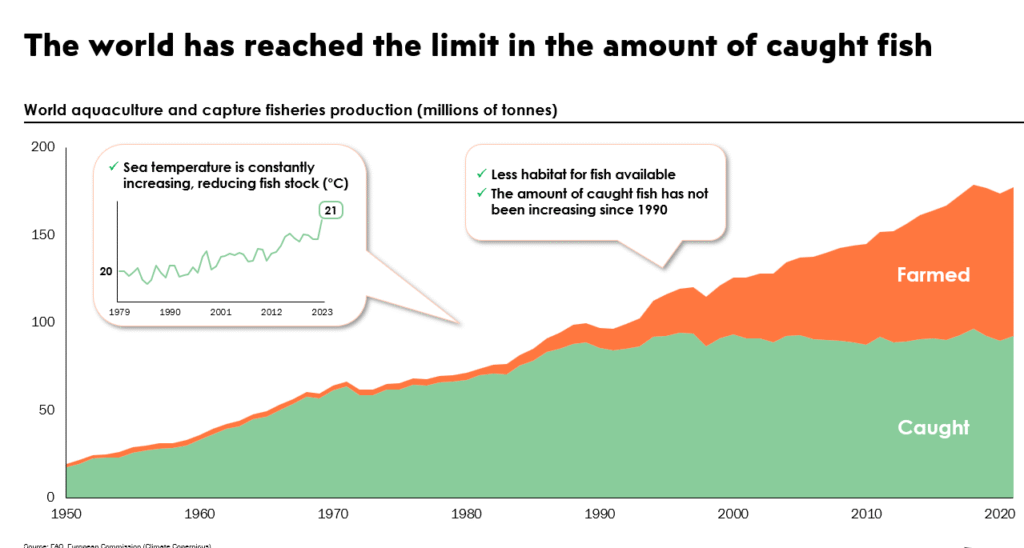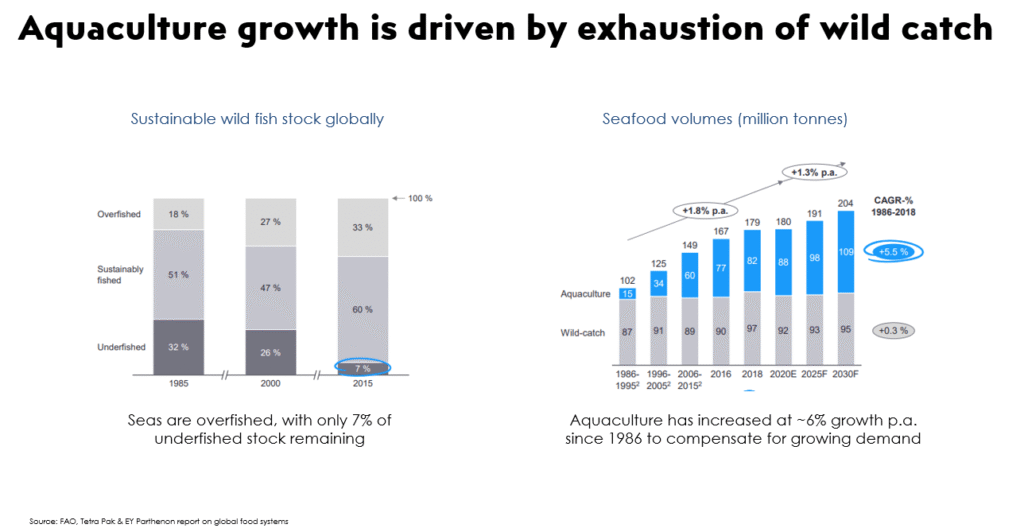
In this exclusive Agro Spectrum and NUFFOODS Spectrum interview, Finnish aquaculture innovator Finnforel outlines its bold global push, starting with the UAE launch of its LoHi brand in LuLu Hypermarkets. With seafood demand in the Emirates growing 5–6 per cent annually, CEO Nora Hortling positions trout as a sustainable, premium alternative to salmon. Powered by a closed-loop recirculating aquaculture system (RAS), Finnforel avoids antibiotics, vaccines, and microplastics, while converting sidestreams into biogas and pet food. Its urban-focused model produces protein close to consumption hubs, ensuring unmatched freshness with minimal ecological footprint. Looking ahead, Nora aims to replicate its blueprint worldwide as protein demand surges toward 2050.
Finnforel has successfully launched its LoHi brand in the UAE, starting with LuLu Hypermarkets. What makes the UAE such a strategic market for your global expansion?

We see the UAE as an exceptionally attractive market. Fish consumption here is already at a good level, which means there is strong underlying demand. The overall fish and seafood market in the UAE is expanding at about 5–6 per cent annually, so the trajectory is positive. What also excites us is the consumer base itself. People in the UAE are deeply interested in healthy, protein-rich products, and trout is still relatively new to the market. That gives us the chance to differentiate ourselves and offer something distinct from what’s already on the shelves.
LoHi products are marketed as clean, convenient, and sustainable. How does your closed-loop aquaculture technology ensure both ecological responsibility and premium quality for consumers?
Our entire system is designed with circularity and responsibility at its core. Even though the waters in the lakes surrounding our factory are exceptionally clean, we go one step further and clean the incoming water once more before it enters the fish tanks. We then recirculate 99 per cent of that water. The small amount of water that leaves the facility is cleaned twice before it returns to nature. Nothing is wasted—sludge is collected and used for biogas production.
Our fish are under 24/7 surveillance to ensure their well-being and the highest product quality. We are both ASC and IFS certified, which demonstrates our commitment to sustainable farming and rigorous processing standards. On the consumer side, we provide convenient, ready-packed products that generate no waste at home or in restaurant kitchens. Even the sidestreams are repurposed, for example as raw material for pet food.
Owing to our closed environment, we don’t need to use preventive antibiotics or vaccines. Our water is free from microplastics, and the controlled ecosystem ensures that the fish remain healthy without external interventions. All of this guarantees a product that is both premium in quality and responsible in terms of its ecological footprint.
Many aquaculture systems face criticism over environmental impact and fish welfare. How does Finnforel’s approach address biodiversity concerns and eliminate the need for antibiotics or parasite treatments?

That’s precisely the advantage of a closed-loop system. Traditional aquaculture often struggles with parasites, which leads to chemical or antibiotic interventions that can harm both biodiversity and fish welfare. In our case, parasites simply aren’t an issue because the environment is fully controlled. Maintaining high water quality is our top priority—it directly impacts fish well-being. Healthy fish, in turn, produce better-quality protein. By removing external environmental pressures, we’ve essentially solved the core challenges that conventional aquaculture has been criticized for.
The UAE market has its own lifestyle and culinary preferences. How did you adapt LoHi’s product formats and branding to meet local expectations?
The reception in the UAE has been extremely encouraging. Consumers have responded very positively to LoHi trout, which we believe has real potential to establish itself as a strong alternative to salmon. Increasingly, shoppers here are looking for sustainably produced fish, and LoHi speaks directly to that demand.
During our in-store sampling activities, the feedback was particularly rewarding. People consistently commented on the taste and freshness, with many describing it as unique and even more appealing than other options currently available. That reinforces our confidence that trout can secure a strong position in the market. We didn’t have to change the essence of our product, but the branding emphasis—clean, sustainable, convenient—has clearly resonated with local consumer values.
With global protein demand expected to rise significantly by 2050, what role do you see Finnforel playing in shaping the future of sustainable seafood worldwide?
We want to fundamentally change how fish comes to our plates. The reality is that our planet cannot withstand an increase in fishing from the seas. Wild stocks are already under immense pressure. At the same time, traditional aquaculture is approaching its limits because of the biodiversity and ecological harm it often creates.
Our model provides a solution. By bringing our concept and blueprint close to major cities with large populations, we can produce high-quality, healthy protein near the point of consumption. That means ecological efficiency, minimal transport, and unmatched freshness—all without harming the environment. We see this as the future: sustainable aquaculture that scales responsibly to meet the protein demands of a growing world.
Looking ahead, what are your plans for further expansion in the Middle East and beyond? Do you envision establishing local partnerships or production facilities outside Finland?
Establishing production facilities globally is absolutely part of our long-term vision. We have already identified several suitable locations. That said, at this stage, our primary focus remains on strengthening our production base in Finland while expanding our sales and presence in export markets like the UAE. Local partnerships will likely play an important role as we move forward, but the overarching goal is clear: to bring Finnforel’s closed-loop aquaculture model closer to consumers worldwide.
— Shraddha Warde (shraddha.warde@mmactiv.com)

